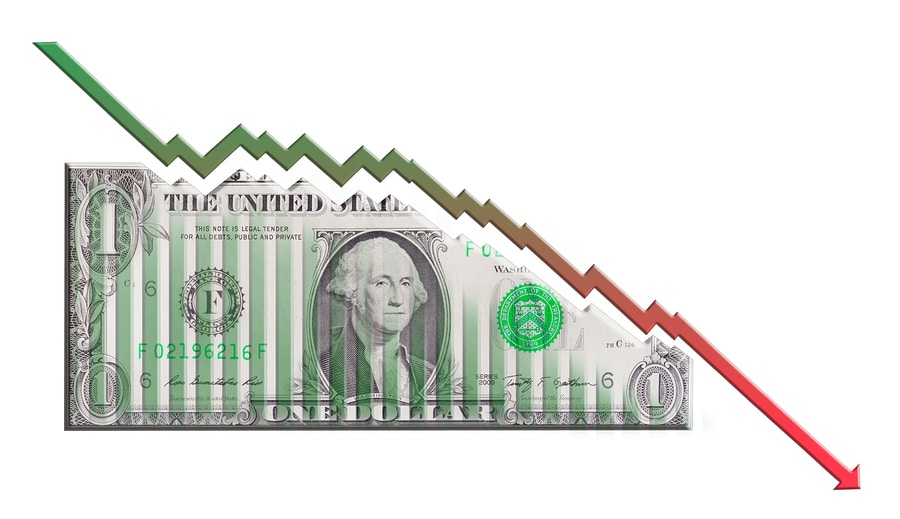The threat of a tax on imports will be his all-purpose lever in foreign and even domestic policy.
Well, here we go. Donald Trump is still two months from returning to the White House, but he’s already wielding tariffs as an all-purpose bludgeon to achieve his political and foreign-policy goals. Markets will have to get used to it because this is going to be Mr. Trump’s second-term method, no matter the economic and strategic ructions.
The President-elect issued a broadside Monday on Truth Social vowing 25% tariffs against all goods from Mexico and Canada, and a new 10% tariff on imports from China. “This Tariff will remain in effect until such time as Drugs, in particular Fentanyl, and all Illegal Aliens stop this Invasion of our Country!” he wrote about the Canada and Mexico levies.
The first political point to note is that Mr. Trump’s tariff justification isn’t economic or based on the traditional claims about cheating or “dumping” products in the U.S. That would typically require studies that find economic harm or a national-security threat.
The tariff here is in service of Trump’s campaign promise to reduce illegal migration and fentanyl smuggling. He vows to take unilateral executive action without any explicit legal rationale. Mr. Trump is threatening the countries, including two neighbors and allies, with economic harm if they don’t help him solve a domestic U.S. problem.
This is an extraordinary use of tariffs, but Mr. Trump is going to use this threat often in his second term. He tried a version of this in his first term to coerce Mexico into assisting him in better policing the border, and he liked the result. Mexico went along with the Remain in Mexico program that held migrants on the Mexican side of the Rio Grande while they awaited asylum rulings.
The hopeful interpretation now is that Mr. Trump is merely using tariffs again as a negotiating strategy to get these countries to help. If they act to reduce the flow of drugs and people, he’ll lift the tariff threat and claim political victory at home.
The problem is that this strategy isn’t cost free and there can be collateral damage. Start with the U.S. auto industry, which depends on cross-border trade to remain competitive. Vehicle components and raw materials move back and forth across North American borders as cars are assembled. A 25% tariff on each border pass would raise prices and cost American jobs. It’s no accident that shares of Ford Motor (-2.6%) and General Motors (-9%) fell sharply on Tuesday on the tariff news. Mr. Trump may not care about stock prices, but what about his new working-class coalition?
There is also the potential risk of retaliation. Mexican President Claudia Sheinbaum on Tuesday offered to talk to Mr. Trump about fentanyl and migration. But she also said she is prepared to respond with tariffs on U.S. exports. Mexico has shown in the past that it can be politically shrewd choosing the American goods and areas it targets with tariffs. Think swing Congressional districts and states.
“One tariff would be followed by another in response, and so on until we put at risk common businesses,” Ms. Sheinbaum said. She has her own economic nationalists to please.
There’s also the not-so-small matter that Mr. Trump’s tariffs, if imposed, would shatter the U.S.-Mexico-Canada Agreement that he negotiated and signed in his first term. The pact’s terms say it can’t be reviewed until 2026, and then the parties have another decade to negotiate new terms or abandon it.
In 2019 Mr. Trump said the USMCA would be “the best and most important trade deal ever made by the USA.” If he blows it up based on his own short-term political needs, he’ll send a message around the world that his—and America’s—treaty word can’t be trusted. U.S. trading partners and allies everywhere will get the message, and China will be courting them with promises of a more reliable export market. Using trade to punish allies is especially short-sighted if you want their help against Chinese mercantilism.
It’s also possible that Mr. Trump views tariffs not merely as a tool for ad hoc negotiation but as a lever to remake the entire global trading system. In that case he’ll try to build high tariff walls in an attempt to force U.S. and foreign companies to build nearly everything in America. The economic and political harm from that strategy is for another day, but investors can’t rule it out and members of Congress would be wise not to give him that power.
As we wrote during the campaign, tariffs were the main economic risk of his candidacy. Mr. Trump campaigned as the Tariff Man, and he aims to impose them early and often. Get ready for what could be a wild ride.
Read the full article HERE.


